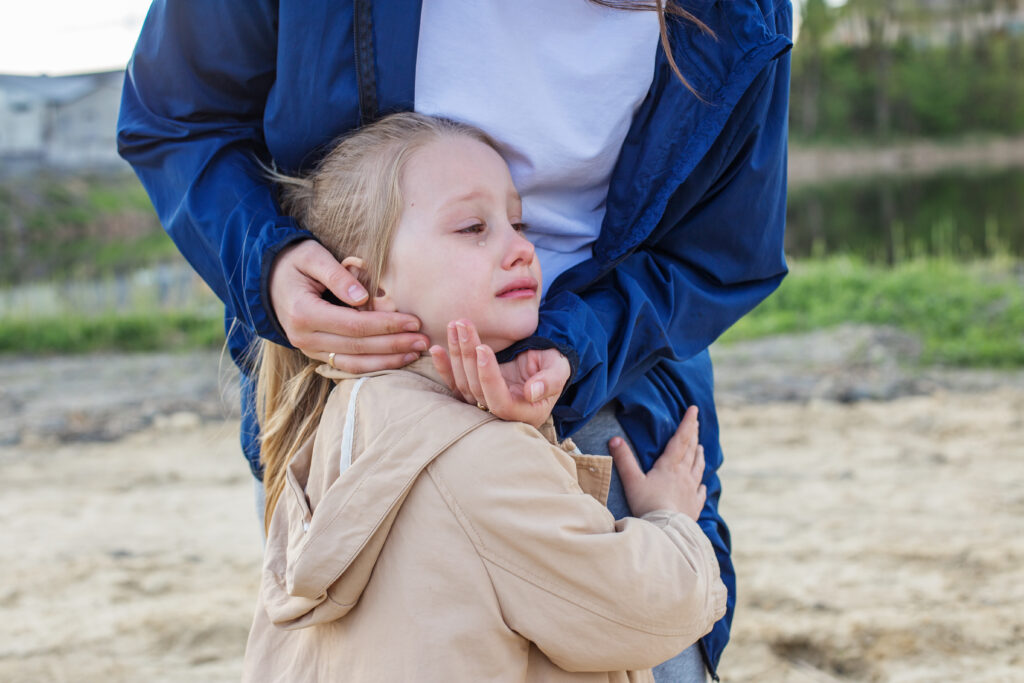How to Stay Calm When Your Child Is Having a Meltdown

There’s nothing quite as challenging—or humbling—as staying composed when your child is mid-meltdown in the middle of the grocery store. Whether it’s a spilled snack, a denied toy, or “just because,” meltdowns test even the most patient caregivers. But how we respond in these moments matters deeply—not just for our kids, but for our own emotional well-being. As a Child Development Specialist, I’ve seen that these high-stress moments are also powerful opportunities. Opportunities to model emotional regulation, create connection, and embody what it means to be the conscious parent. Let’s talk about how you can stay grounded—even when everything feels like it’s unraveling. 1. Regulate Yourself First: Your Calm Is Contagious Before you can guide your child through their storm, you must anchor yourself. Children subconsciously borrow our nervous systems—if we’re anxious, they escalate. If we stay calm, they begin to regulate. Incorporate mindful parenting techniques like deep breathing or repeating calming mantras such as “My child is having a hard time, not giving me a hard time.” This pause allows you to respond, not react. And yes, it’s okay to take a moment for yourself. Step away briefly (when safe), close your eyes, breathe deep, and ground your feet. You’ll return more present and composed. 2. Empathy Over Explanation When a child is in meltdown mode, logic won’t land. Instead of trying to explain or fix, lean into connection. Get down to their eye level and use Active Listening Parenting tools: “I see you’re really upset. I’m here with you.” This nonjudgmental presence helps your child feel seen and safe. It’s also a practice rooted in Nonviolent Communication, which is key to nurturing trust and co-regulation. Think of these moments as micro Family Meetings—they’re not scheduled, but they’re full of emotional data. They tell you what your child is struggling with, and what they need from you emotionally, not behaviorally. 3. Set Boundaries with Compassion Being calm doesn’t mean being permissive. Children thrive with clear, loving limits. Use positive discipline strategies for toddlers such as “I won’t let you hit, but I’ll help you with those big feelings.” It’s a dance between empathy and boundaries. The goal is to stay connected while guiding. This approach supports Holistic Child Development—meeting their emotional, cognitive, and social needs in the moment. Over time, these small interactions shape your child’s ability to handle frustration, communicate clearly, and develop healthy coping skills. Real-Time Research and Stats According to a 2023 study by the American Psychological Association, children whose parents consistently respond with calmness and connection during emotional outbursts are 60% more likely to develop strong self-regulation skills by age 5. Practicing how to implement conscious parenting techniques at home not only builds emotional safety but also decreases behavioral problems over time. Conclusion: Choose Connection Over Control Parenting isn’t about perfection—it’s about presence. Staying calm during your child’s meltdowns isn’t easy, but it is deeply impactful. Every moment you choose connection over control, empathy over reaction, you lay the foundation for lifelong emotional intelligence. Tip: Create a calm corner at home—a cozy space with soft lighting, favorite books, or sensory items where your child can go to reset when things feel big. Don’t forget to follow us on Instagram, and YouTube for more insights and expertise. For the latest news and updates, click here to view our recent press releases.

